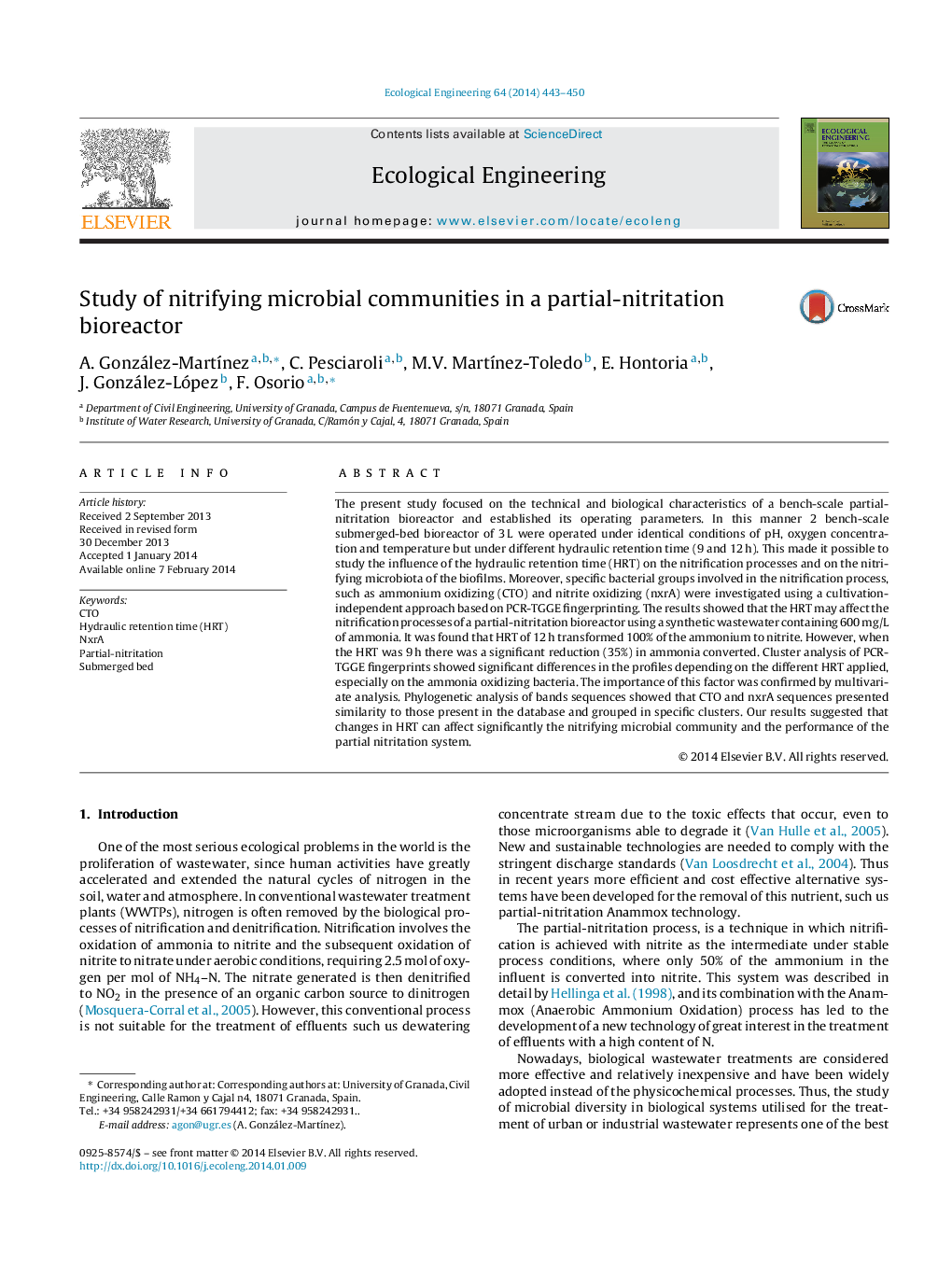| Article ID | Journal | Published Year | Pages | File Type |
|---|---|---|---|---|
| 4389608 | Ecological Engineering | 2014 | 8 Pages |
•The study was done in 2 bench scale partial-nitrification Submerged bed bioreactors.•Nitrifying bacteria were studied using Nxra and CTO genes by PCR-TGGE fingerprinting.•We focused the study in the influence of the hydraulic retention time (HRT).•The HRT effect in the microbial communities was confirmed by multivariate analysis.•In the supplementary data denitrifying bacteria were studied using nosZ gen.
The present study focused on the technical and biological characteristics of a bench-scale partial-nitritation bioreactor and established its operating parameters. In this manner 2 bench-scale submerged-bed bioreactor of 3 L were operated under identical conditions of pH, oxygen concentration and temperature but under different hydraulic retention time (9 and 12 h). This made it possible to study the influence of the hydraulic retention time (HRT) on the nitrification processes and on the nitrifying microbiota of the biofilms. Moreover, specific bacterial groups involved in the nitrification process, such as ammonium oxidizing (CTO) and nitrite oxidizing (nxrA) were investigated using a cultivation-independent approach based on PCR-TGGE fingerprinting. The results showed that the HRT may affect the nitrification processes of a partial-nitritation bioreactor using a synthetic wastewater containing 600 mg/L of ammonia. It was found that HRT of 12 h transformed 100% of the ammonium to nitrite. However, when the HRT was 9 h there was a significant reduction (35%) in ammonia converted. Cluster analysis of PCR-TGGE fingerprints showed significant differences in the profiles depending on the different HRT applied, especially on the ammonia oxidizing bacteria. The importance of this factor was confirmed by multivariate analysis. Phylogenetic analysis of bands sequences showed that CTO and nxrA sequences presented similarity to those present in the database and grouped in specific clusters. Our results suggested that changes in HRT can affect significantly the nitrifying microbial community and the performance of the partial nitritation system.
